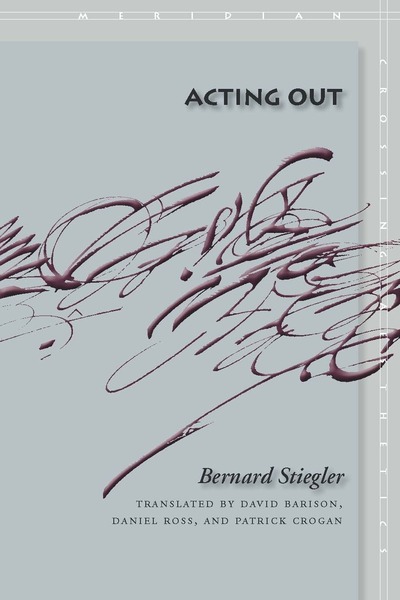Pascal Chabot: The Philosophy of Simondon: Between Technology and Individuation (2003/2013) [FR, EN]
Filed under book | Tags: · cybernetics, individuation, marxism, philosophy, philosophy of technology, technology

“The last two decades have seen a massive increase in the scholarly interest in technology, and have provoked new lines of thought in philosophy, sociology and cultural studies. Gilbert Simondon (1924 – 1989) was one of Frances’s most influential philosophers in this field, and an important influence on the work of Gilles Deleuze and Bernard Stiegler. His work is only now being translated into English. Chabot’s introduction to Simondon’s work was published in French in 2002 and is now available in English for the first time. It is the most accessible guide to Simondon’s important but often opaque work. Chabot provides an excellent introduction to Simondon, positioning him as a philosopher of technology, and he describes his theory of individuation including his crystalline ontology. He goes on to offer a bridge between these two concerns, exploring how they are related.”
French edition
Publisher Vrin, 2003
ISBN 9782711616008
160 pages
English edition
Translated by Aliza Krefetz with the participation of Graeme Kirkpatrick
Publisher Bloomsbury Academic, 2013
ISBN 1780930976, 9781780930978
156 pages
via thuihux
Review: Aud Sissel Hoel (Phil & Technology, EN)
La philosophie de Simondon (French, no OCR)
The Philosophy of Simondon (English)
Bernard Stiegler: Acting Out (2003/2009)
Filed under book | Tags: · individuation, narcissism, philosophy, synchronization

“Acting Out is the first appearance in English of two short books published by Bernard Stiegler in 2003. In How I Became a Philosopher, he outlines his transformation during a five-year period of incarceration for armed robbery. Isolated from what had been his world, Stiegler began to conduct a kind of experiment in phenomenological research. Inspired by the Greek stoic Epictetus, Stiegler began to read, write, and discover his vocation, eventually studying philosophy in correspondence with Gérard Granel who was an important influence on a number of French philosophers, including Jacques Derrida, who was later Stiegler’s teacher.
The second book, To Love, To Love Me, To Love Us, is a powerful distillation of Stiegler’s analysis of the contemporary world. He maintains that a growing loss of a sense of individual and collective existence leads to a decreased ability to love oneself, and, by extension, others. This predicament is viewed through a tragic event: in 2002, in Nanterre, France, Richard Durn, a local activist, stormed the city’s town hall, shooting and killing eight people. Durn committed suicide the following day. The later publication of Durn’s his journal revealed a man struggling with the feeling that he did not exist, for which he tried to compensate by committing an atrocity. For Stiegler, this exemplifies how love of self becomes pathological: a “me” assassinates an “us” with which it cannot identify.”
How I Became a Philosopher was originally published in French in 2003 under the title Passer al’acte.
To love, to love me, to love us was originally published in French in 2003 under the title Aimer, s’aimer, nous aimer.
Translated by David Barison, Daniel Ross, and Patrick Crogan
Publisher Stanford University Press, Stanford, California, 2009
Meridian: Crossing Aesthetics series
ISBN 0804758697, 9780804758697
93 pages
PDF (updated on 2020-8-7)
Comment (0)Nick Srnicek: Assemblage Theory, Complexity and Contentious Politics. The Political Ontology of Gilles Deleuze (2007)
Filed under thesis | Tags: · assemblage, complexity, individuation, ontology, philosophy, politics, social constructivism, speculative realism
The purpose of this thesis is to reconsider the nature of ontology in contemporary political science, with the belief that such a move can be of great benefit to understanding changes in our era of globalization and terrorism. This is accomplished by examining the ontologies of both social constructivism and critical realism in order to show their reliance upon illegitimate presuppositions, and then developing a novel ontological position on the basis of these criticisms.
Gilles Deleuze’s concept of assemblages – and his ontology, more generally – are examined as particularly powerful ways to conceptualize the complexity, dynamism and differences that are inherent to the political world. This is brought out concretely in a study of recent academic work on contentious politics in order to show the centrality of conflict and difference to politics, and to show the power of a reconceptualization of ontology.
Keywords: Deleuze; Bhaskar; individuation; ontology; complexity; contentious politics; critical realism; assemblages; social constructivism
Unpublished MA Thesis
The University of Western Ontario, 2007.

